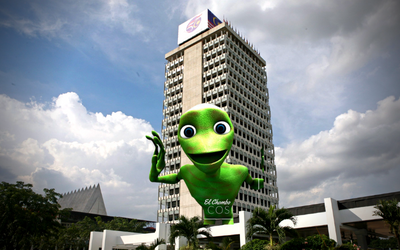
Despite the massive turnout for GE-15, no party seem to have enough number of seats to form a government – this resulted in a hung parliament. Following the 2018 turmoil, the anti-hopping law was passed. This means that Members of Parliament (MP) are unable to party-hop. What can possibly happen now?
We spoke to Nigel William Kraal, a legal associate in Chooi & Company + Cheang & Ariff (CCA) and asked him some questions on how foolproof the anti-hopping law is, and here is what he has to say:
Undoubtedly, these are unchartered waters. Much is left to be tested, preferably by legal redress in due course. However, there is a pressing need to appoint a government and pass a budget.
A lot also depends on the discretion of the YDPA. As always, there are constraints to the exercise of discretion.
Turning to the questions –
By constitution (Article 43), the PM needs to have the support of majority MPs. Can a group of MPs, without leaving his party, show support to an MP from another party (eg Hishamudin + Zahid showing support to Anwar)?

A lot depends on the rules of each party. Proclaiming support for one party may not result in a seat being vacated.
For example, if one is sacked from a party, no by-election is triggered; the anti-hopping law does not kick in (Article 49A(2) Federal Constitution). On the other hand, if one leaves/resigns from a party, the anti-hopping law is triggered (Article 49A(1), Federal Constitution).
Dato’ Seri Dr Zahid Hamidi’s statement (20.11.2022) is a case in point. Judging by the statement, it appears that a by-election will result if an MP goes against the ‘party whip’. Presumably, the undertaking (aku janji) referred to has the effect of forcing a member to resign for going against a ‘party whip’. An analysis of such undertaking is required to verify the accuracy of the statement. Whether the undertaking was given by UMNO members, or all coalition members (including UMNO Sabah) is also uncertain.
Party rules aside, any MP who leaves a party of their own volition will trigger a by election (Article 49A(1), Federal Constitution). But this, too, is subject to the Speaker establishing such vacancy (how this operates without Parliament in session is left to be determined).
More importantly, if a seat becomes vacant, the threshold for a simple majority will likely be reduced accordingly and an incoming MP (not part of the government) will disturb the majority held by an incumbent PM, giving rise to a vote of no confidence.
It is also worth noting that the anti-hopping law does not apply when an entire party leaves a coalition. E.g. if DAP leaves PH. From the illustration in the amendment bill, it appears that the law was never intended to cover such a scenario (the amendment bill can be found here.
In the UK, there is a convention that states the party with the majority seats gets to choose who to form a coalition with. Does that apply in Malaysia?
Yes, it would appear so. Case in point being the Perak State Constitutional Crisis in 2009. There is a press statement which clarifies this position.
However, this does not mean one party is given all the time in the world to do so.
How much time should be given to ‘A Party’ to form the Government?
There is no prescribed period and the YDPA has given until 2pm Tuesday to form a majority. Given the importance of convening Parliament and passing the budget, this timeframe may not be unreasonable.
Can another Sheraton Move happen? How?
Of course. The anti hopping law only applies to MP’s, not political parties.
Assuming PN + GPS (among others) form the Government and a disagreement arises between (for example) PAS and GPS. Nothing can stop one party from withdrawing support for the coalition. Theoretically, this should trigger a vote of no confidence, followed by an election. Whether the Speaker allows any such motion, however, is another matter.
Remember that in 2020, the success of the Sheraton Move was predicated on Tun M resigning, first. He was later appointed as ‘interim PM’.
Whether the new PM will ‘give in’ so easily is left to be seen.
Nigel William Kraal is a practicing lawyer in Chooi & Company + Cheang & Ariff (CCA). He completed his Master of Laws in 2019 from University of Law, England before completing his pupilage in 2020. He is now a practicing lawyer in CCA experienced in civil litigation.